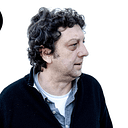The Future of Universities in a Block Chain World | Diane Sieber | TEDxBoulder
Hoy traemos a este espacio esta TEDXtalk de Diane Sieber, titulada “The future of Universities in a BlockChain, que nos presentan asío:
Universities have been central to intellectual and creative discourse for a millennium, and yet during the last two decades, powerful economic, technological and social forces have increasingly challenged their survival. Professor Diane Sieber argues that the future of the university may look very much like its origin: decentralized, just-in-time learning with flexible curricula and outcomes-based rather than credit-hour-based credentialing. In the near future, block chain technology will allow learners to design a personalized education that constellates inexpensive online resources and experiences, and to connect directly with employers through smart contracts. Universities that can adapt quickly will weather this change; others will collapse in the face of accelerating technologies and less expensive alternatives. Diane Sieber is a professor in the Engineering College at the University of Colorado, where she lives in a student residence hall with global engineers who speak many foreign languages. She also inhabits the intersection among information technologies, history, philosophy, literature, online games and punk rock.
Diane Sieber joined the Herbst faculty in fall 2004. Raised in Spain, she pursued undergraduate studies in Spanish and Russian literatures and in history (University of Virginia), and earned her MA and PhD in Romance languages (Princeton University). She comes to Herbst from the CU-Boulder Department of Spanish and Portuguese, where she has taught freshman critical thinking classes, Spanish culture, medieval and Golden Age Spanish literature and the arts, and graduate seminars on Spanish theater, the European Baroque, Don Quixote and the monster in literature and film. She has published a book on Spanish historiography and articles on Don Quixote, the Spanish theater, the Moorish population in the Spanish Empire prior to 1614, and Spanish writings on colonial New Mexico (1541–1700).
Diane discovered computer programming, web design and digital art as an assistant professor and continues to pursue all three. Although the two halves of her world would seem to be far apart, she sees the blending of technology, the arts and humanities as the key to a fulfilling life. In Baldassare Castiglione’s The Book of the Courtier (1528), the ideal renaissance man educated himself in many different areas of study with the conviction that the knowledge native to one field of study can lead to greater understanding in another; that answers in one discipline can resolve questions in another; that a well-rounded individual is better able to respond to life’s challenges. Having spent the last few years exploring technology with arts and humanities students, Diane is looking forward to many years of discussing the arts and humanities with engineers.
